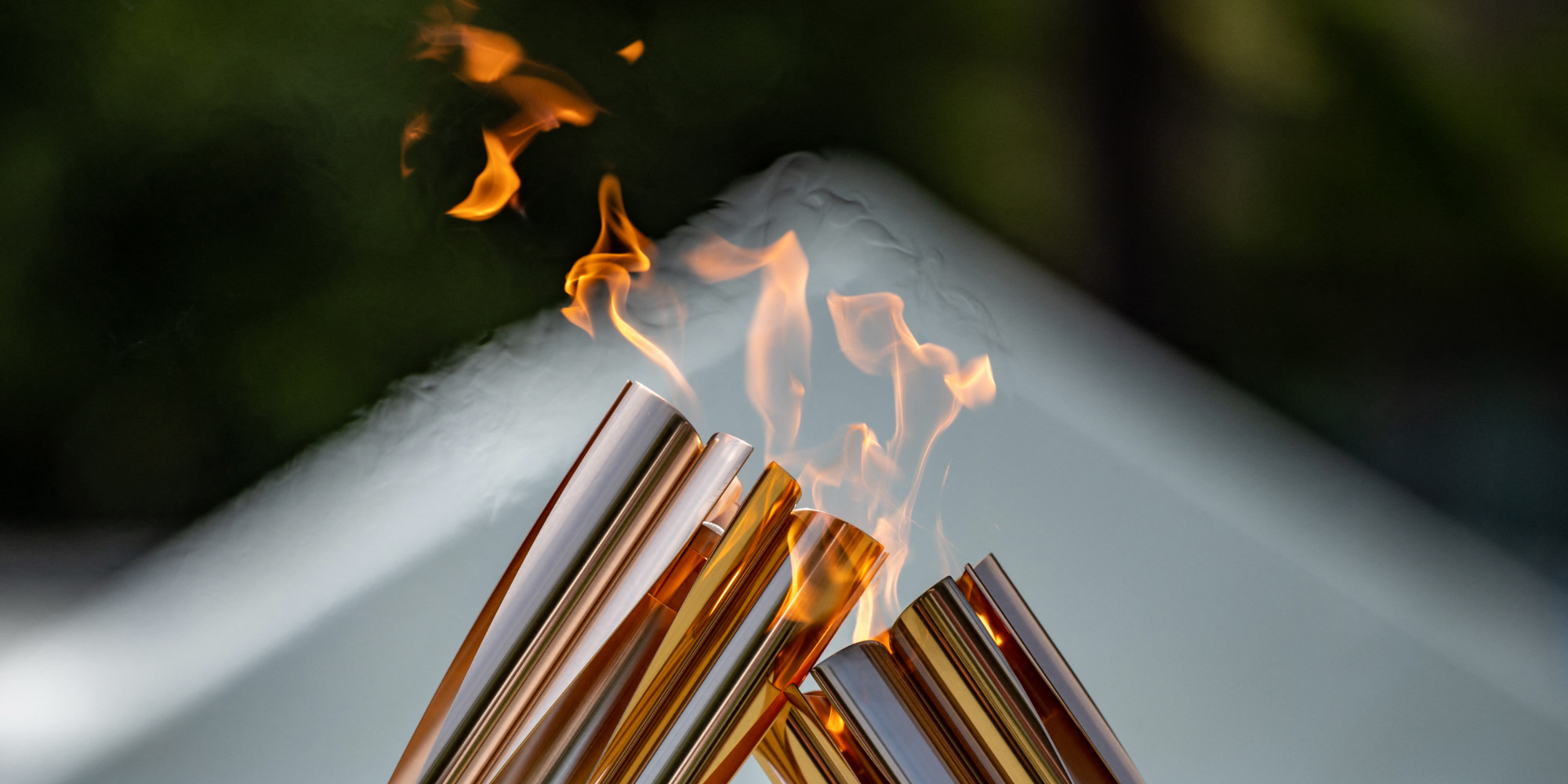Cyrille de la Morinerie, edited by Gauthier Delomez / Photo credits: Philip FONG / AFP
The organizing committee of the Paris 2024 Olympic Games (Cojo) unveils this Friday the complete route of the flame. This symbol of the Olympic Games will enter the Old Port of Marseille on May 8, 2024, and will cross 54 departments and five overseas territories. Flagship stages such as Mont-Saint-Michel are also expected.
12,000 kilometers in total, this is the distance that the Olympic flame will cover in France before the Paris 2024 Games. Lit as always in Olympia, Greece, the flame will make a remarkable arrival in France since this symbol of the Olympic Games will be transported by the last French tall ship, the Belem, and will enter the Old Port of Marseille on May 8, 2024.
A stopover at Mont-Saint-Michel
The torch will cross 54 departments and five overseas territories and will stop in emblematic places such as Mont-Saint-Michel. “It’s something exceptional that will not happen again”, saliva in advance Jean Morin, the president of the Manche department. “It seemed essential to me that the flagship monument, one of the wonders of the West, be there to relay this passage, and then show that the Manche department is anchored in tradition and sport”, adds he at the microphone of Europe 1.
The Olympic flame should also pass in Verdun or on the Millau viaduct. Each torchbearer will carry the flame for four minutes over a distance of 200 meters. In total, 10,000 carriers will take turns until July 26, 2024, the date of the opening ceremony. Great champions will take turns like Laure and Florent Manaudou.
But for the moment, we still do not know either the last carrier or also the place where the Olympic cauldron will be placed in Paris. This Friday, the organizing committee (Cojo) must officially unveil, in the great amphitheater of the Sorbonne, the complete route of the flame. It will make its third appearance in France at these Games, after those of Grenoble (1968) and Albertville (1992).
